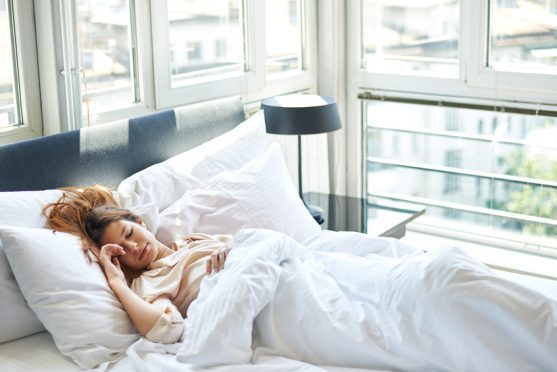I am just back from three days away in the great outdoors.
It is not surprising I slept like a log. I had no internet so my phone was redundant.
My mind was focused on the here and now, I had no pressing concerns. I ate well and drank very little alcohol.
After a day of fresh air and exercise including a ‘bracing’ swim in Loch Coruisk, it was bliss to settle down in a comfortable bed and conk out. I woke at my usual time, refreshed and looking forward to the day ahead.
As I have grown older my sleep pattern has grown more irregular. As a young man I desperately needed a good eight hours in my bed but gradually, after years of disturbed nights on call, bringing up a young family and the occasional troubling brush with ill-health I had no option but to manage on less and now seven hours is more than enough.
I rarely sleep right through, and that is usually okay.
Dr Miles Mack: Taking great pains is vital in best helping those with chronic conditions
I have come to accept that often I’ll be awake in the wee small hours rehearsing the day to come or thinking over difficult issues.
In fact, some of my brightest ideas have come to me then.
Many of my patients have a different experience. Being awake through the night is a frequent cause of misery.
Going to bed but struggling to find sleep or nodding off and then waking for hours, desperate to have enough sleep to be sufficiently refreshed enough to manage the day ahead and having nothing for company but worry.
And it’s not just worry that keeps them awake; their frustration at actually being awake triggers a vicious cycle of anxiety and further sleeplessness.
It’s all too easy to request or prescribe a sleeping tablet which, admittedly, may work for a single night – but single nights of sleeplessness should be considered normal.
It is only when insomnia is repeated for weeks and months that it is a medical issue and sleeping tablets have no role.
The trouble is, our bodies quickly become used to them and so not only are we back where we started but also we run a very high risk of becoming dependent on them for even minimal sleep.
What is more, sleeping tablets have a rebound effect on anxiety, worsening the problem and can result in the patient drifting around the next day in a medication fog.
In the elderly they are even more damaging, leading to a high risk of falls and a worsening of memory and thinking capacity.
For a doctor, having no easy medical option is not a comfortable place to be as the solution will be harder to agree and will take more time.
The best evidence to help insomnia is for a cognitive behavioural therapy-based approach, looking at what we do, what we think and how these things affect us. I would want to know more about the patient’s sleeping pattern.
If the aim is to try for six to seven hours’ unbroken sleep, going to bed at 10pm will be counterproductive unless you intend to get up at four or five o’clock – not remaining anxiously in bed snatching the odd hour or so until nine in the morning.
Our bodies’ sleep patterns are governed by routine. Weekend lie-ins or late nights will not help.
Bed is a place for rest. Distractions such as screens and TV upset our day/night rhythms and should be kept out of the bedroom.
Alcohol may help you get to sleep but will wear off after a short time and will shorten and worsen the quality of your sleep. Caffeine is well-known to keep us awake and even cigarettes have a negative effect.
If you are immobile all day it will be harder to separate day and night. People working night shift and on-call are going to struggle even more.
Other problems such as chronic pain, anxiety and depression take over and require their own remedies.
Many people are kept awake by anxiety and worries, almost as if our brains keep going over them in a repeating cycle so we don’t neglect them in the morning.
It may be time to try to acknowledge these concerns by having a notepad by your bed to write them down, leaving them for the next day and getting back to the business of rest.
Notice I said ‘rest’ and not ‘sleep’. It is very hard to force yourself to sleep. You lie awake anxious you can’t sleep, perhaps listening to your own heartbeat and longing for either sleep or daylight to arrive.
I suggest changing what you are aiming for. Enjoy being in the warmth, safety and comfort of your bed, close your eyes and just seek some rest.
Bring your attention to the moment, maybe to the awareness of your breathing, rather than those insistent “what if …” thoughts and anxieties – they’re on a notepad by the bed, ready for tomorrow, remember?
Dr Miles Mack is a GP in the Highlands and the former chair of the Royal College of General Practitioners Scotland











